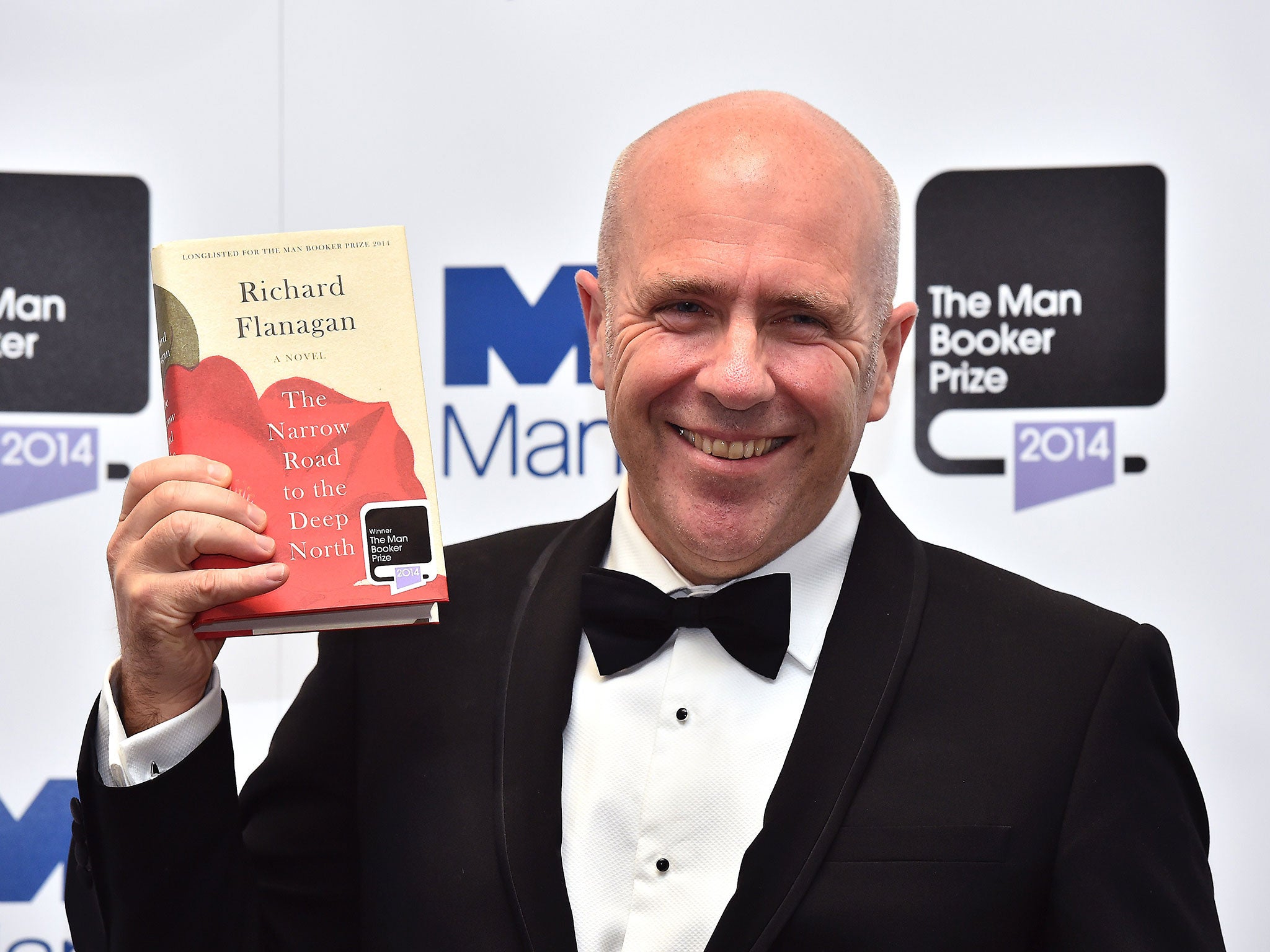Richard Flanagan's Man Booker win reminds us the prize is open to the Commonwealth
The first Man Booker to allow American nominees was won by an Australian

Your support helps us to tell the story
From reproductive rights to climate change to Big Tech, The Independent is on the ground when the story is developing. Whether it's investigating the financials of Elon Musk's pro-Trump PAC or producing our latest documentary, 'The A Word', which shines a light on the American women fighting for reproductive rights, we know how important it is to parse out the facts from the messaging.
At such a critical moment in US history, we need reporters on the ground. Your donation allows us to keep sending journalists to speak to both sides of the story.
The Independent is trusted by Americans across the entire political spectrum. And unlike many other quality news outlets, we choose not to lock Americans out of our reporting and analysis with paywalls. We believe quality journalism should be available to everyone, paid for by those who can afford it.
Your support makes all the difference.Richard Flanagan, a leading light of Australian fiction, won the £50,000 Man Booker prize this week for his profound and powerful novel about a POW camp on the Burma Death Rail that was inspired by his own father’s experience of war.
Prisoner 335, as Flanagan’s father appears in the book’s dedication, did not get a chance to read the novel because he died on the day Flanagan finished writing The Narrow Road to the Deep North. But it is not for this reason that this astonishing novel is such a resonant and deserving winner, though it certainly gives Flanagan’s win an added emotion touch.
Neither is it a triumph purely because it pipped the two Americans on the shortlist, in the first year that the prize opened up to cross-Atlantic fiction, to much controversy and hand-wringing that they would dominate ‘our’ beloved prize.
Tasmanian-born Flanagan, 53, reminds us that the Booker has never been about provincialism; it has always had its doors open to Commonwealth writers and world experiences. His sixth novel reminds us of good, grown-up writing, and good plotting too. Re-tracing the life story of his ageing protagonist, Dorrigo Evans, it tackles with immense depth and deft themes of war, guilt, what it means to be a war ‘hero’ and the enduring memories of pain that conflict leaves on the soul. It took him 12 years to write – partly inspired by his father’s three and a half years in the prisoner of war camp run by the Japanese where 14,000 died, Flanagan discarded five previous versions before submitting this one to his publishers.
It is graphic in showing us the brutal, dehumanising conditions which Australian PoW’s faced in ‘the line’ as the Burmese railway came to be known, though it shows compassion in its depiction of Japan’s war too. It also reveals an aspect of Australian war history that many have only begun to address in fiction.
It is just as graphic in Dorrigo’s doomed love story, and in this, it can be compared with Sebastian Faulk’s Great War story, Birdsong. It is unsettling, riveting read that manages to be both complex and accessible. It’s no surprise that the judges called the book “a kick in the chest”. It won’t leave anyone unmoved.
Others on the shortlist included Americans, Joshua Ferris for To Rise Again at a Decent Hour and Karen Joy Fowler for We are All Completely Beside Ourselves, the previous Booker winner, Howard Jacobson, a columnist at The Independent, for his dystopic novel, J, and the bookie’s favourites, Neel Mukherjee for The Lives of Others and Ali Smith’s How to be Both.
The Man Booker prize is nearly always accompanied by voices of dissent every year which claim the ‘wrong man’ won it. Certainly there was several shortlistees who could have deservedly won, and Flanagan was high among them. This year, they got it very right.
Join our commenting forum
Join thought-provoking conversations, follow other Independent readers and see their replies
Comments